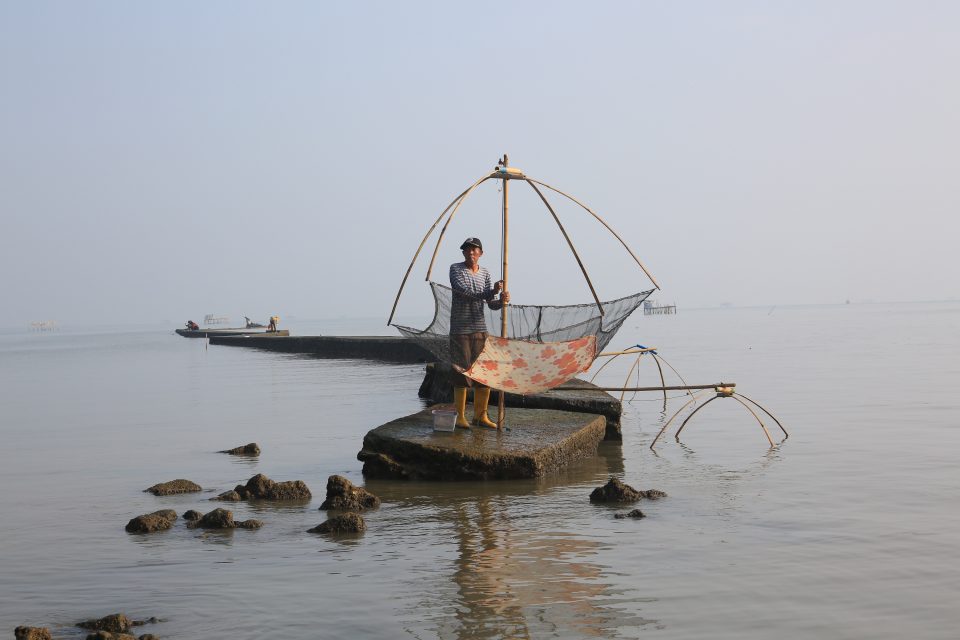Cutaway in the village of Ciapus on the rice fields outskirts of Bogor, a young man prepares for his routine work of grating nutmegs.
His eco-friendly grater doesn’t need electricity. On a daily basis, he can separate kilograms of nutmegs from their skins and get them ready to dry in the sun. He opens the fruits by hand first, spreads them vigorously on the grating board that works like a sieve to filter the scarlet aril around the nuts.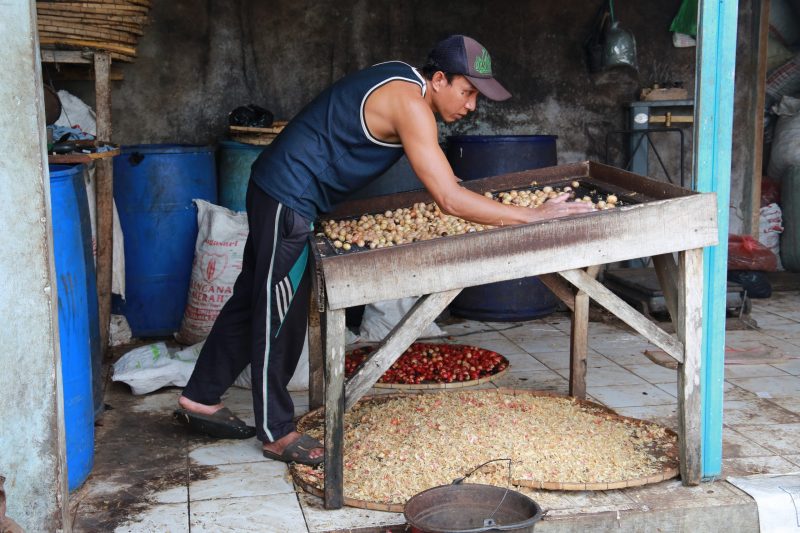
Not far away from this site are a few women busy separating the grains from the husks in the good old way. Rice production is in full swing, but the machinery is still out of the way.
The biggest challenge in both the cases and in many other agricultural practices prevalent in villages is human effort. Hands and legs, and sometimes the whole bodywork tirelessly from morning till afternoon. But then, when have we not sweated from the dawn of time in order to produce results of various kinds? Even with technology singing support side by side, our bodies are stretched to manual action every now and then. Added to this challenge is the pace of production. As a country looks forward to feeding its own as well as doing business outside by exporting products, some changes are sought after.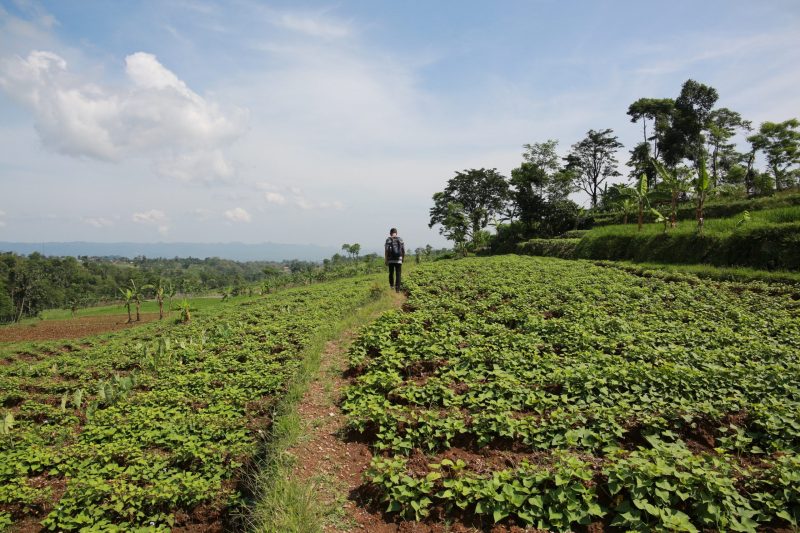
Further away from Ciapus and the city of Bogor lies the highland of Tenjolaya. Situated close to the foothills of Mount Salak, Tenjolaya is a haven for multiple vegetable cultivation that surrounds rice fields and terraces. Farmers here depend entirely on traditional ways of seeding and harvesting. The tools they use are mostly made of wood and the heavy equipment is made of iron, being used for years. A walk down the alleys between sweet potato (called ubi in Bahasa Indonesia) fields is very calm and soothing as the sound of any processing through machinery is absent. The irrigation system is managed through wooden pipes that channel water to different fields. At each turn, a bamboo piece acts as a diverter by tilting up and down (thanks to the water’s weight) from the connecting pipe to collect and supply water.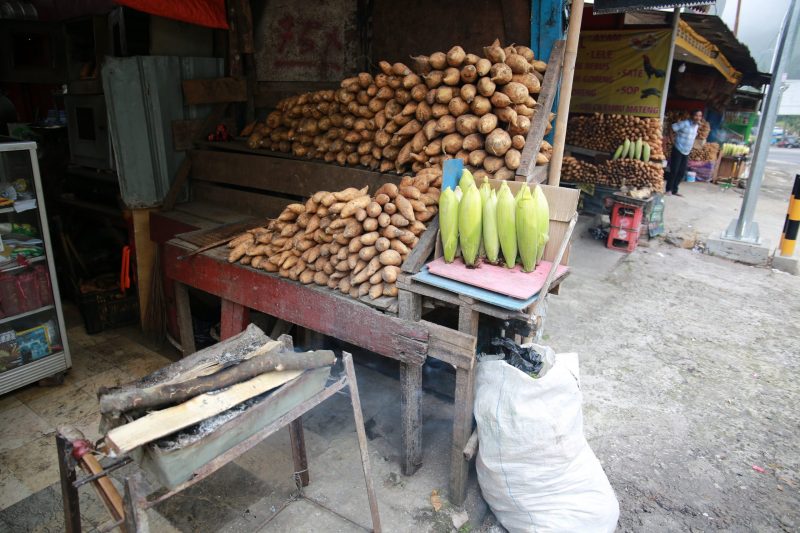
These vegetables end up in the nearby markets raw and in the forms of various snacks. They are sold both cooked and uncooked. Taking a drive on the hilly, winding roads of Puncak will provide glimpses of never-ending rows of shops selling sweet potatoes, cassava, taros, corns, and other vegetables. The snacks made of these veggies offer great varieties and buying them directly from markets liaising with farmers can bring a great deal of satisfaction, in terms of quality and price.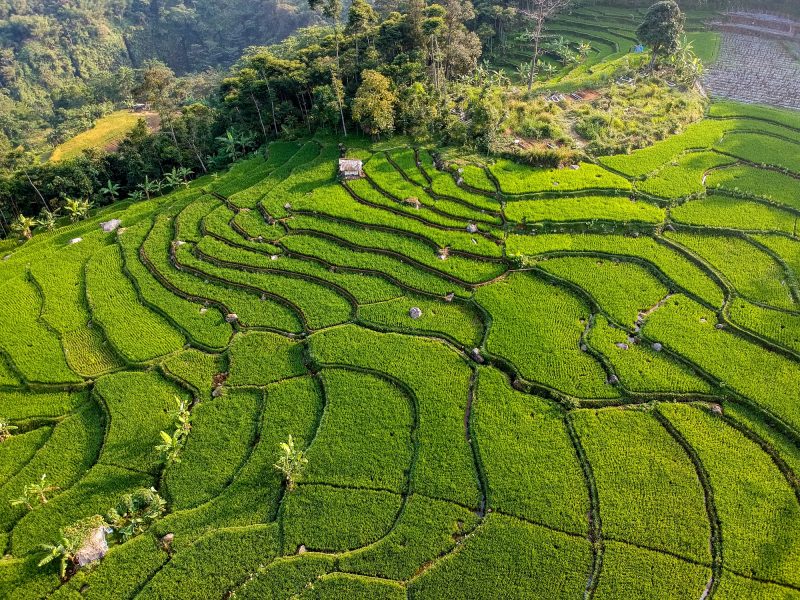
Terracing the rice fields is a popular and sustainable way of production across Indonesia, especially in Java, Bali, Sumatra, and Sulawesi. The picture-perfect postcards of rice terraces in Tegallalang, Bali are so often used in publications that the sight is imprinted on every tourist’s mind. Such mind-boggling rice terraces are elsewhere too. The village of Ciasihaan, an hour from Tenjolaya, has layers of greenery formed by sparkling fields stretching to 200-300 meters. Rice terraces save a lot of water in the course of production.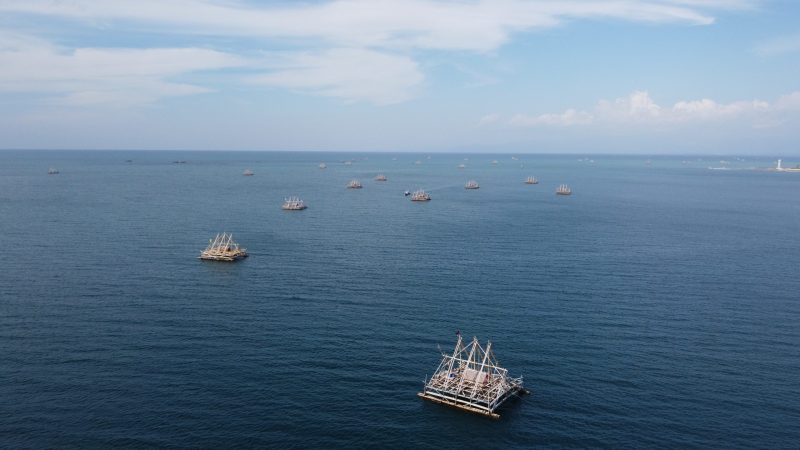
Going down to West Java’s neighboring Province of Banten, the archipelago’s favorite profession (sometimes sport) displays itself in many fashions. At the centuries-old Karangantu port, a fisherman goes about his usual business of casting nets tied to a bamboo umbrella structure. His endeavor is far from industrial expeditions that launch boats and ships to comb the ocean. And out in the Sunda Strait, there are more bamboo structures, bigger and mightier than the umbrella net. These are bagan, floating fishing huts. Fishermen spend their nights in these huts and catch fish using flashlights and by lowering the nets attached to the bottom of the floating bamboo poles. Such eco-friendly fishing activities are common in other islands across the country. These will thrive even with the introduction to modern fishing methods for many years into the future.
Indonesia is primarily an agrarian nation, and the island of Java is the foremost contributor to different agricultural products including rice. The grass-roots farmers and fishermen in the country are one of the best living examples to learn from in terms of self-dependence, traditional ways of growing crops, and most importantly, practicing eco-friendly activities.
Needless to say, we cannot carry on without changes forever. But the key is to make changes that do not interfere with the environment on a potentially destructive scale.




